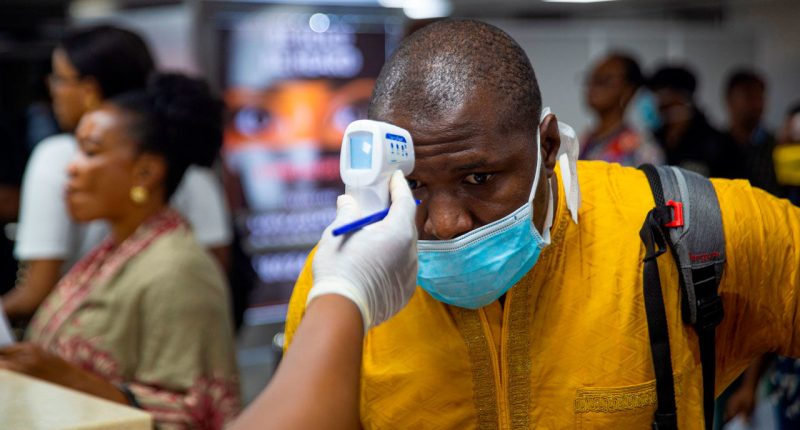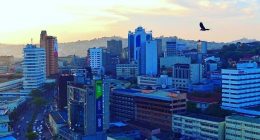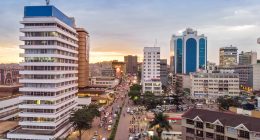Editor’s note: this article is part of the “Covid-19 Reset” project, where the LéO Africa Institute is asking its fellows and associates to imagine a new, progressive post-covid world for our respective communities and countries.
***
On Thursday, 6th February 2020, I was in Uganda, attending my class of 2019 fellowship graduation for the Young and Emerging Leaders Project (YELP). In one of the sessions, we were having a chat with Mr. William Babigumira, a board member of the LéO Africa Institute, and our conversation got more focused on what was happening in China at that time. He explained to us in detail the background of the virus and the challenges it posed to the leadership of China in handling the situation from the minute a first case got discovered.
Up to that day, I had not fully grasped the extent of the effects and challenges that this virus could potentially cause; it felt like we were discussing a newly released movie featuring the virus affecting humans in Asia. I could not imagine what it would be like to live in a world of isolation from one another, being locked down in our own homes, wearing masks all the time, and losing hundreds of our loved ones every single day!
Fast-forward to a month later, what seemed a far-end virus was now announced to have arrived within my own country, Tanzania. In the blink of an eye, we transformed from being commentators to participants and victims of this dreadful virus! Immediately I had to take administrative leadership, and we started working from home to ensure the safety of employees in our organization. We quickly had to adapt to operate virtually without jeopardizing our efficiency. This was the toughest time that tested our strength as a team to navigate in chaos.
The 21st century is known to be the most advanced century in the history of humans, equipped with the highest levels of science and technology, resources, facilities, and information. However, the Covid-19 pandemic hit the world in the most unexpected ways. More than 477,000 people died in just six months and 9.24 Million were infected globally. While treatment or a vaccine is yet to be found for the coronavirus; the world is experiencing tension, loss of lives, and economic shocks due to the different measures each country imposed worldwide.
The outbreak put both leaders and governments through a difficult test of their leadership abilities, based on how each and everyone responded. Different methodologies applied across the globe for the sake of containing the virus, saving lives, and national economies. The following are the leadership lessons that I have picked during this trying time.
There is no one-size fit solution for all. Because of the diverse nature of economies, politics, and lifestyles, it is nearly impossible to find a common solution to any challenge. For instance, in Tanzania, the government took a different path of response as compared to other neighboring countries in the region. Instead of imposing lockdown in the country, the government allowed all the economic activities to carry on but closed schools from pre-primary to universities. Concurrently, the emphasis on observing social distancing by suspending social gatherings such as sports, wedding ceremonies, and concerts, were highly imposed to reduce the spread of the disease. The ministry responsible for health made deliberate efforts to create public awareness on the virus, from the prevention reporting of the suspected cases of coronavirus. A national handwashing campaign, use of hand sanitizers, and wearing masks, were conducted countrywide.
Faith is a vital pillar during the chaos. There is power in relying on certain convictions during the confusion. It helps to provide calmness and peace of mind. I observed how the Tanzania government reduced tension caused by the fear of the pandemic, by announcing a three-day national prayer for the country. With precautions of health safety, the government went further not to close gatherings in the houses of worship such as Mosques and Churches and argued people to devote the country in prayers based on their faith.
It is important to make firm decisions and choices. In a time of chaos, as a leader, it is vital to find solutions that suit your environment, people, and structure; to demonstrate confidence, focus on implementation, make firm decisions and own the consequences accruing out of these decisions. President John Magufuli displayed such traits in handling the situation. The President took a different approach in responding to the pandemic for the better interest of the country and the people despite getting critiques from different parties.
Do not lose hope in chaos. The pandemic imposed darkness and led to anxiety, tension, and panic within societies. The uncertainty of the treatment and loss of loved ones caused people to lose hope. Leaders of countries, being comforters in chief, took different approaches to bring hope in their communities. For example, President Magufuli and his government decided to stop releasing updates on the number of cases as part of building confidence in peoples’ hearts and allow them to focus on their daily economic activities while observing the recommended health precautions.
Embrace locally-based solutions. The COVID-19 came as a reset factor in the world. Regardless of the differences in the levels of economic prosperity, social status, or technological advancement in the world, we all became vulnerable to the virus with no treatment. It has provided room for Africans to innovate and try natural remedies to this and many other diseases that continue to threaten humanity. For example, the early efforts of Madagascar or the natural steaming therapy famously known as ‘’nyungu’’ in Tanzania.
Collaboration is one of the main factors of development in the crisis. It was by far impressive to see how governments took charge and collaborated with private sector players to respond to the pandemic. For example, in Tanzania, the government came together with different private education stakeholders to support more than 13 million students at home by providing learning resources and materials through various media channels such as Television programs and Radio.
We are now living in trying times that probably will not allow us to go back to what we used to consider our “ordinary” lives. This pandemic has certainly taught our generation that even the concept of “normal” is dynamic. We are now responsible for defining a new normal. As young leaders, we ought to shift our mindsets to a ‘future-ready’ mode. We must be prepared to adapt as we continue to face new challenges. It is evident there is no one-size-fits-all solution in solving our leadership challenges; we must continue to learn to be agile and adaptive in our leadership journey to achieve the Africa we want.
Fatma Kauga is a Class of 2019 Young and Emerging Leaders Project (YELP) Fellow of the LéO Africa Institute.









